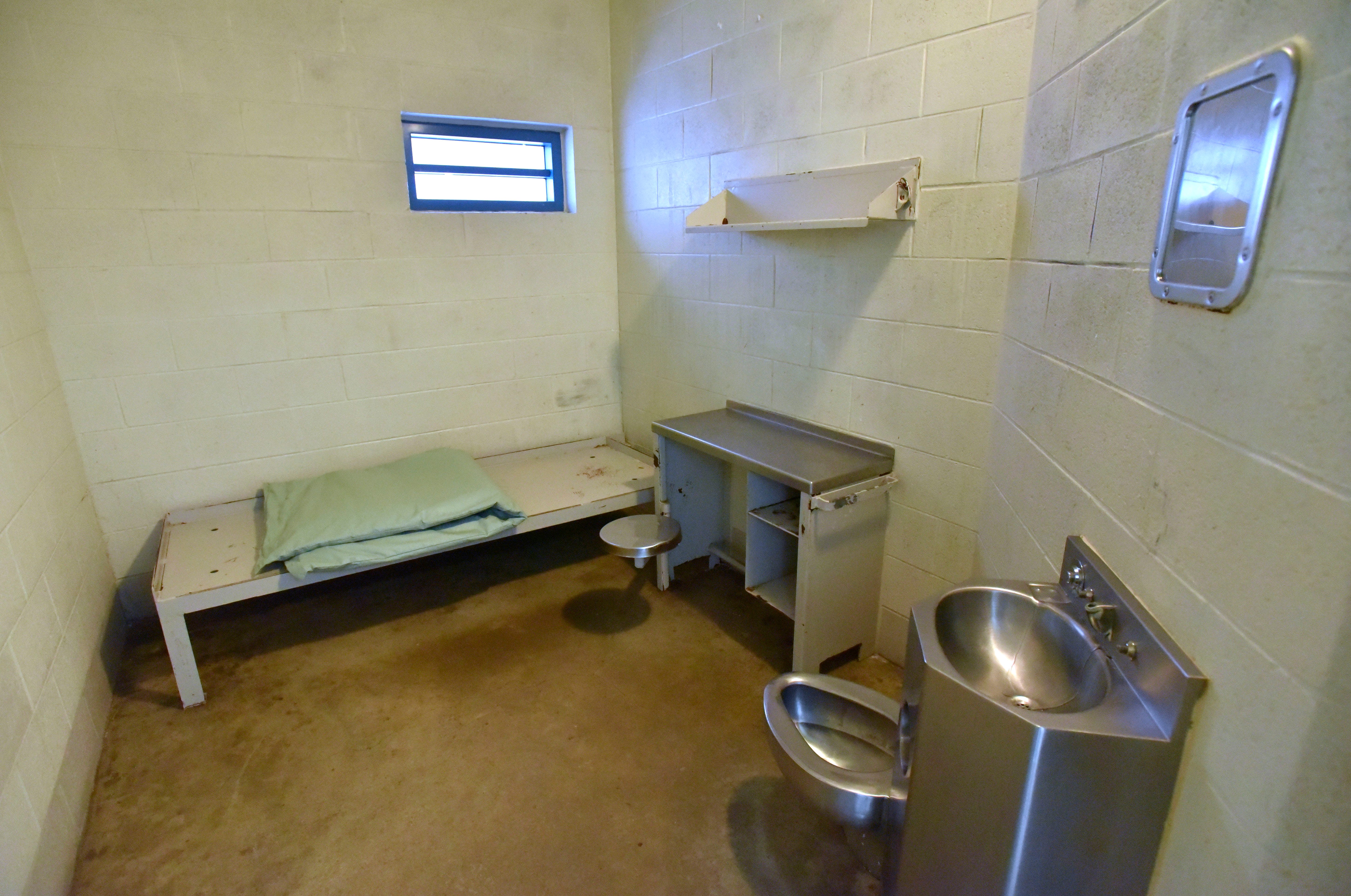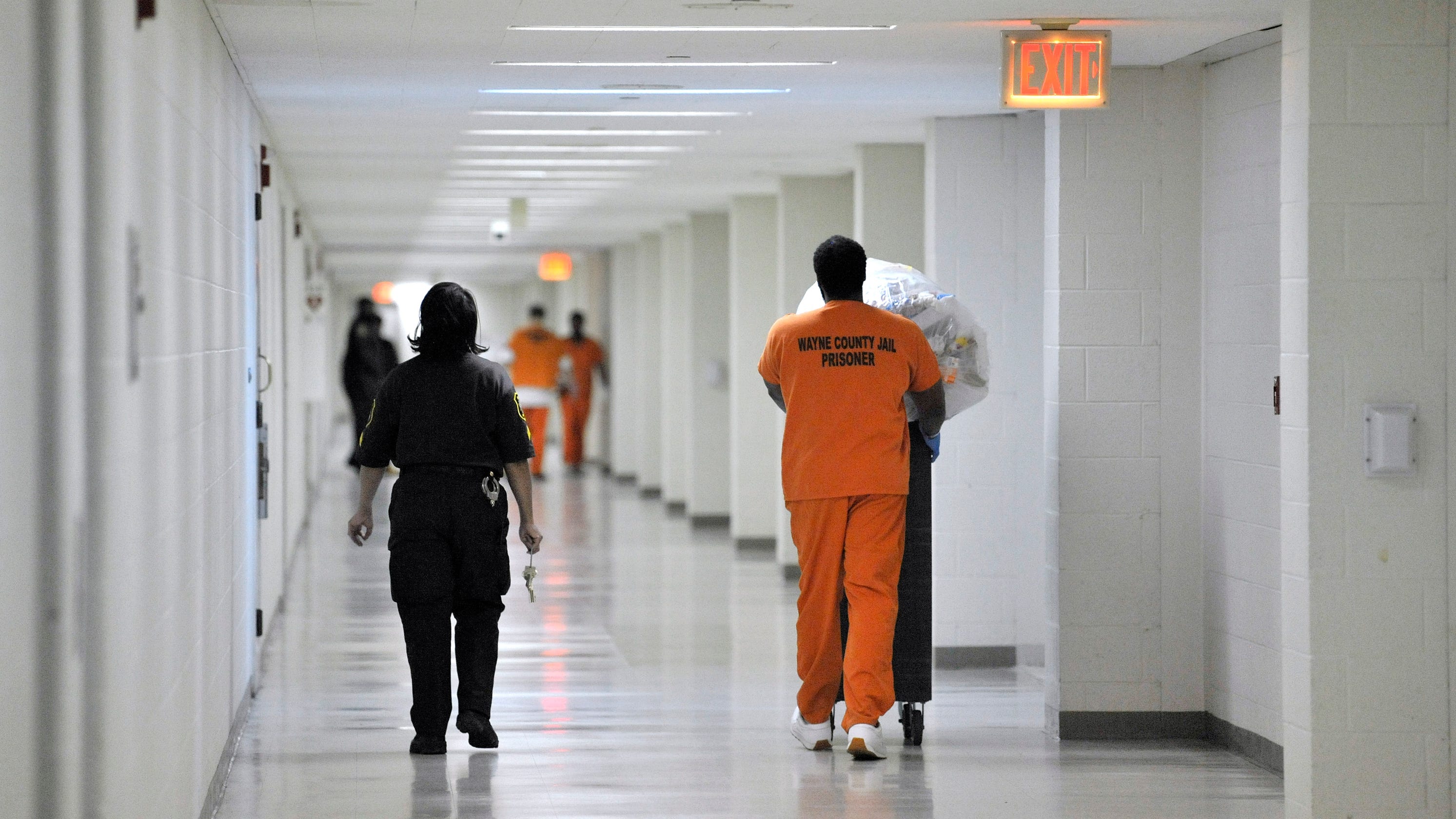Detroit — Wayne County Jail has a $93 million misdemeanor problem.
That was the cost of incarcerating inmates serving time for misdemeanors or ordinance violations from 2015 to 2017, said Robert Dunlap, chief of jails for the Wayne County Sheriff’s Office, which operates Michigan’s largest county jail.
A new collaboration between the sheriff’s office and the Detroit Wayne Integrated Health Networkunites the institutions in a common mission: address people’s mental health needs before they turn into a revolving door of legal trouble or jail stays.
To the extent that nonviolent, low-level offenses such as trespassing might owe to someone’s mental health, the idea is that treatment should be available, Dunlap said.
“Some people need to be in jail,” he said. “Some people need treatment. And some people need to be treated while they’re in jail. We want to get everyone in the right place.”
Under the new effort funded by a $150,000 grant from the Michigan Department of Health and Human Services, a database was built using data from both the jail and the mental health system. The work will proceed in two phases.
A sheriff’s corporal escorts an inmate worker in a long hallway in the jail. (Photo: Todd McInturf, The Detroit News)
The first phase, according to a DWIHN summary of the project, uses jail and mental health data to build an algorithm that would “learn and discern” the characteristics of the severely mentally ill population that indicate an increased risk of non-violent crime.
“We’re hoping that by addressing whatever those mental health challenges are, if those were contributors to the issues that bought that individual to our company, that we remove that and we prevent them from returning,” Dunlap said.
The second phase is for the jail to identify misdemeanor offenders with mental health issues who can be diverted before their issues escalate to a felony level. In a sense, that would be an expansion of a diversion effort the jail has carried out for more than a half-decade.
For years, the jail has pulled select inmates out of the jail and placed them into community-based treatment. Sheriff Benny Napoleon has said these resources are cheaper and better than what’s available behind bars.
Since then, the county has spent about $3.5 million on mental health or substance abuse treatment for inmates, and moved about 2,000 to community resources, which is preferable to treatment only in jail.
Wayne County, and Michigan as a whole, are in th midst of a jail diversion movement, particularly where mentally ill inmates are concerned.
From Napoleon and Wayne Circuit Court Chief Judge Timothy Kenny to experts in the mental health field, the shortcomings of jail as a rehabilitative environment are clear.
Having an idea of who the familiar faces might be, before they make a second appearance at the jail, could result in interventions that improve community health and save taxpayers money, Dunlap said.
More: Wayne County studies ‘Miami model’ for mental health jail diversion
But those diversion efforts have focused on misdemeanor offenders. As it works to drop headcounts in the jail, Wayne County has studied the “Miami model” for mental health diversion, which slashed jail enrollments in half over the last decade. But even in Miami, it took more than a decade for the system to warm to diverting felons.
Wayne County isn’t there yet.
“Consequently, leadership is not quite ready to move forward with the focus on felonies,” reads the DWIHMproject summary.
The $336,000 inmate
“If you experience trauma as a young person and you don’t address that or identify that by the time you become an adult, you can see yourself in a lot of unfortunate situations,” said Andrea Smith, director of workforce training and program development for the health network.
If “hurt people hurt people,” as Smith says, the goal is to connect a person to the resources they need, before anyone gets hurt.
 Buy Photo
Buy Photo
The interior of a typical jail cell. (Photo: Todd McInturf, The Detroit News)
In 2017, Wayne County Jail housed some 21,078 inmates. Just under half of those inmates, 10,235, had a record with the then-Detroit Wayne Mental Health Authority.
Upwards of 12,000 misdemeanor inmates were booked about 14,500 times, and stayed for 28,000-plus days, at a cost of $40.4 million. That year, 1,717 of those misdemeanor inmates were flagged for mental health issues. Of that group, 82%, or 1,411, had a record with the health authority. Those inmates stayed 52,586 days in jail, at a cost to taxpayers of $8.4 million.
On the community mental health side, the question was: can machine learning help the system predict if someone with acommunity mental health record might become a jail inmate?
Among those interventions are counseling, social work, making sure a person is in regular contact with their doctor, and even “supportive employment” and “supportive housing” for those with chronic job or housing needs.
A single inmate, who jail officials called “Charlie Brown” to protect his anonymity, has been booked 48 times at Wayne County Jail between 2001 and October, covering 1,013 days at a cost of $336,000. That includes six bookings in 2019, all for misdemeanors. Most of his bookings involved trespassing or disorderly conduct.
“What does this person need to stay out of my jail?” Dunlap said.
‘Too little, too late’
“Traditionally, intervention programs are offered to individuals with a severe mental illness as a result of a negative behavior or incident,” said the Detroit Wayne Integrated Health Network’s successful application for a $150,000 adult block grant from the Michigan Department of Health and Human Services.
“For this vulnerable population, it can often be too little, too late.”
More: Wayne County advisory commission digs into jail data
Troy-based WIT Inc. was contracted to create a database and dashboard merging jail and community mental health data.
Quaid Saifee, president of WIT, said that jail stays are longer and more frequent for people with mental health issues, a finding that matches reports from Gov. Gretchen Whitmer’s Taskforce on Jail and Pretrial Incarceration, which is studying jail diversion from a statewide perspective.
More: In first meeting, state jail task force outlines goals, seeks solutions
“You’re not just seeing the data, but you’re learning from the historical data which you have captured,” Saifee said. “And now you’re predicting for the future. That allows you to determine what should happen next.”
Read or Share this story: https://www.detroitnews.com/story/news/local/wayne-county/2019/12/29/wayne-county-jail-mental-health-misdemeanor-problem/2607877001/

















